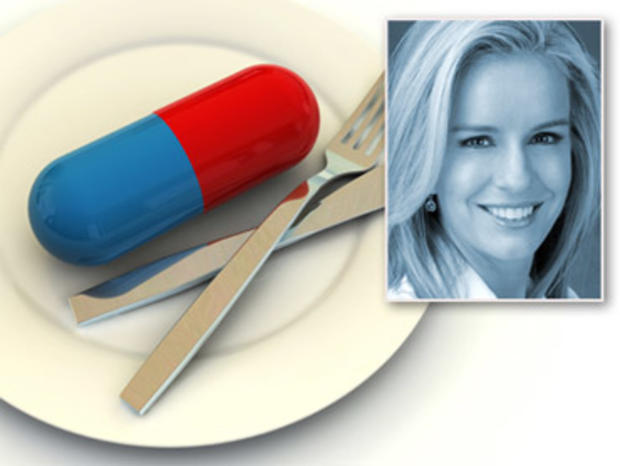Dr. Jennifer Ashton Weighs in on New Weight-Loss Drugs
(CBS) Wouldn't it be nice if weight loss were as simple as popping a pill?
While experts agree there is no easy fix for obesity there is also no shortage of efforts to find a so called 'magic pill'. There are currently three new weight loss drugs seeking FDA approval.
The first of these three drugs, Qnexa, got a thumbs down from an FDA Advisory panel earlier this month, due to worrisome side-effects including memory lapses, suicidal thoughts, heart palpitations and birth defects. Qnexa is a combination of two older drugs: phentermine, an amphetamine and and one half (not the dangerous half) of the now defunct diet drug Fen Phen, and topiramate, an anticonvulsant drug.
While these two drugs are still available by prescription, I strongly caution that patients should NOT try to make their own concoction of Qnexa because the dosages of the two individual pills are much higher than the doses used in the combined product, Qnexa. Taking these two individual pills together would be very dangerous.
Though unlikely, the FDA could reverse the decision of the advisory board on Qnexa. It will make its final ruling on Oct 28th.
Meanwhile Lorcaserin, a drug which has shown to be moderately effective in weight loss trials with very minor side effects will go before an FDA advisory panel in September.
Test results of Contrave, the third new diet drug, showed more than 44 percent of patients lost more than 5 percent of their body weight. That was double the response seen in the placebo group. The FDA will discuss Contrave at advisory meetings in early December.
Why is a medical fix for weight loss so hard to achieve?
Well for one thing, doctors still don't fully understand what causes obesity and that complicates the research. A successful diet drug can work in a variety of ways. A drug might target the brain by shutting off the hunger drive or stimulating the satiety center. Alternatively, medications that work in the GI tract by reducing absorption of calories and fat could also spark weight loss. And thirdly compounds that effect a person's metabolism by revving it up will lead to more calories burned and significant weight loss.
No matter which pathway they choose, researchers know they must create a drug that has no unpleasant or dangerous side effects. Drug makers are also aware that many obese people are already taking multiple medications and so any successful new diet pill will aim to have few, if any drug-to-drug interactions
Most weight loss professionals believe that successful weight loss requires multiple approaches used either in sequence or together. Patients and their doctors should consider a combination of therapies; including medications, behavioral modification and lifestyle changes and possibly, when all else fails, surgery.
